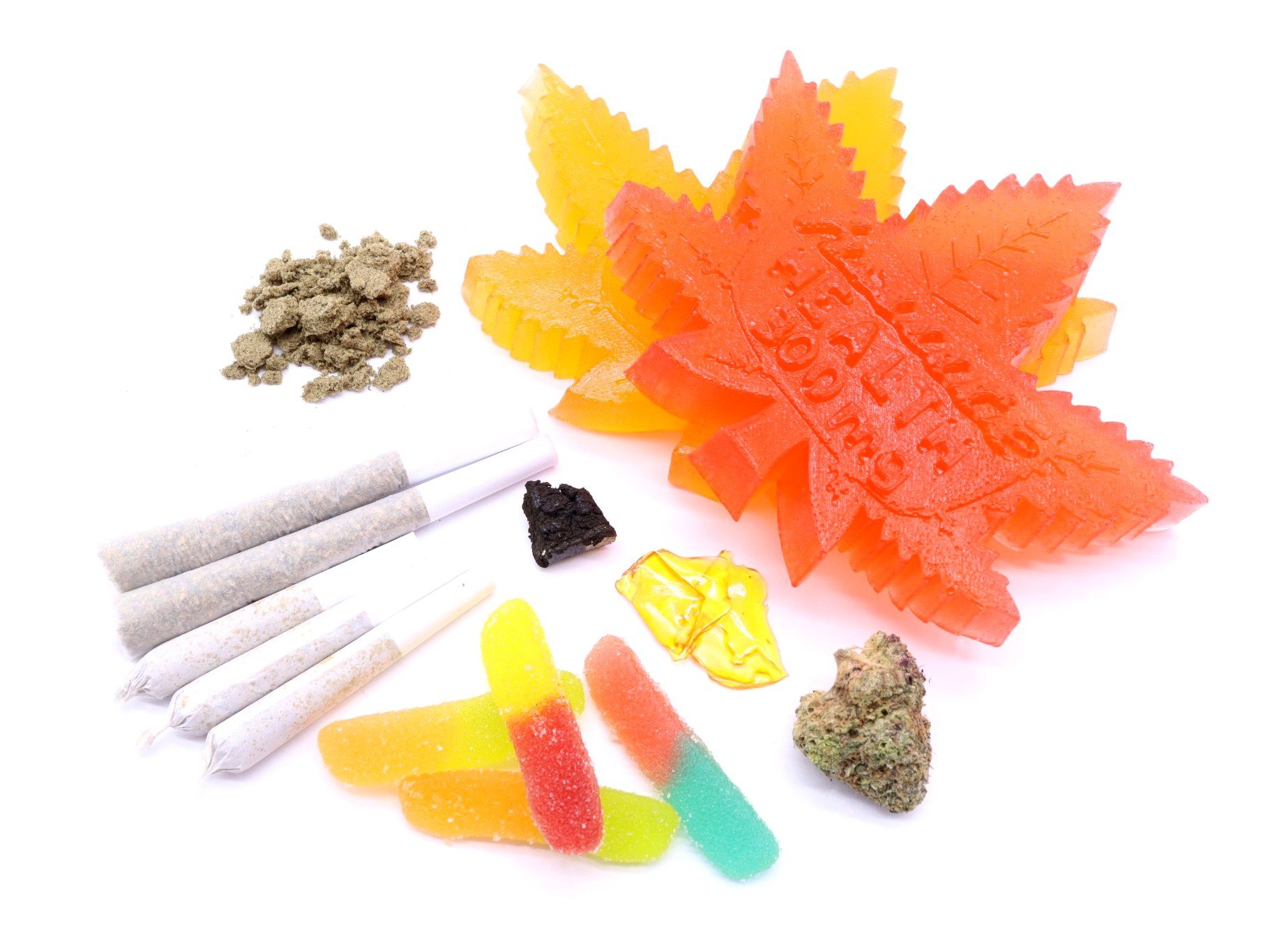One thing is for sure: there are a lot of milks out on the market today. It seems like every time you get used to a new kind of dairy alternative, five more crop up and become the top new choice for coffee, smoothies or cereals. Soy reigned as the alternative king for decades, but almond milks and coconut milks came on the scene and wrested control of the throne. In recent years, oat milks have become all the rage and have seemingly replaced cashews, almonds, coconuts and peas (yes, there are pea-based milks aplenty out there!). Oat milk is creamy, consistent, full of nutrients and it even froths/foams! What could possibly top this stellar milk alternative?!
Enter hemp milk. That hearty plant we’re all becoming well-acquainted with, hemp, is not only booming all over the globe with its CBD derivatives but it’s entrenched itself further with hemp seeds, hemp protein powders and now hemp milks. We know what you’re thinking: “oh great, another milk alternative…”, but this “milk” isn’t like the others. Hemp milk benefits include:
High in calcium
Over 10 amino acids
Rich in magnesium, zinc, phosphorus and other micronutrients
Abundance of omega fatty acids 3 & 6
A generous profile of B vitamins and other nutrients
You might not know much about this wonder-milk but its growing popularity will soon correct this problem. What are the pros and cons of hemp milk? Where can you buy hemp milk? What kinds of recipes with hemp milk can take your nutrition & fitness routines to new levels? Let’s pour a glass of knowledge on this under-appreciated milk alternative and explore hemp milk benefits.
Pros & Cons of Hemp Milk
Despite the name, hemp milk is a lot like other plant-based milks in that it’s not really “milk” at all. Hemp milk is derived from soaking, grinding and combining the resultant powdered form with water to form what is essentially “hemp seed juice”. Hemp milk can be fortified with other beneficial nutrients or flavorings, but it is often wholesome and delicious all on its own. Once these hemp seeds have been processed and combined into their new liquid form, hemp milk offers a creamy, rich consistency that can be both very potent in flavor or diluted to be barely noticeable.
CON: FLAVOR
One of the drawbacks of many alternative milks is their overbearing flavors. Some people find the tastes of almonds, coconuts or hemp milks to be too overpowering in a dish, smoothie or baked good. What’s more, many people have remarked on hemp’s almost fishy after-taste, although this seems to be very dependent on your personal flavor preferences (don’t worry, there’s no actual fish in this milk!). Others seem to really enjoy the nutty, hempen flavors of hemp milk so this con can easily become a pro depending on your experience.
PRO: NUTRITIOUS
Hemp milk benefits cover a wide variety of nutritious properties of this plant-based milk. Hemp milk, like other milk alternatives, offers a profile of amino acids, proteins, carbohydrates and micronutrients without the issues associated with dairy products (hormones, bad fats, added sugars, etc).
The average cup of hemp milk typically contains:
60-75 calories
5-10 grams of healthy fats
2-3 grams of carbohydrates
3-5 grams of protein
On top of these balanced nutritional values, hemp milk is known to offer stable sources of magnesium, calcium, omegas 3 and 6, protein and a variety of essential amino acids.
CON: COST
When you’re looking where to buy hemp milk one of the first things you’ll come across is its higher price. Hemp as a crop is very easy to produce, very hearty and grows quite quickly. Nevertheless, it is also a very popular cash crop that certainly has higher prices attributed to it. Because of the popularity of things like hemp CBD, hemp fiber for textiles and hemp seeds, one of the cons of hemp milk is that it can cost consumers more at stores.
On average, hemp milk can range from $5.00 to $8.00 or more per 946 ml (32 oz) carton. Compared to the ever increasing costs of dairy, this might not seem to bad but when you compare hemp milk costs to other plant-based options (soy = $3-4, almond = $3-5, oat = $4-5, coconut = $4-6) then it’s clear why some people avoid buying hemp milk simply because of the higher prices.
PRO: ALL HEMP, NO THC
One of the most common misconceptions about hemp milk has to do with THC. Many people wonder about the pros and cons of hemp as it relates to its THC contents – the psychoactive compound found in cannabis and hemp that causes the “high” you’d expect from smoking weed. One of the most searched hemp milk benefits is that it contains zero THC – that means no psychoactive properties, much like its hemp CBD counterpart.
Hemp plants typically contain far reduced THC values than their cannabis cousins. Some cultivars of hemp can offer smaller THC percentages, but in the United States all federally regulated hemp products must contain less than 0.3% THC to be sold legally, so most hemp products contain little-to-no Tetrahydrocannabinol by default. It’s important to note that hemp seeds also do not contain any active compounds found in mature hemp plants. Hemp seeds do contain healthy fats, proteins, amino acids and micronutrients but the highly-sought after cannabinoids like CBD or THC are not present until the plant has vegetated/flowered.
Whenever you’re looking where to buy hemp milk it can be a bit tougher than the usual plant-based milks like soy, almond or oat. Hemp milk is certainly growing in popularity but it’s not exactly a staple in most circles just yet. So, whenever you’re looking to buy hemp milk it’s best to look online or at health food stores. Natural health food or supplement stores always have hemp milk in stock as it’s a popular smoothie additive or breakfast enhancer.
Similarly, most major online retailers have a variety of hemp milk brands because hemp milk pairs very well with protein shakes and other fitness supplements. Hemp milk provides a rich supply of healthy fats, carbs and protein that many professional athletes or fitness enthusiasts truly appreciate. This might account for some of the higher prices for hemp milk in relation to other plant-based milks – markup in the health & fitness industries is (in)famously in the upper echelons.
Recipes Using Hemp Milk & How to Make It
If you have access to a good hemp supplier and can accumulate some hemp seeds of your own then you might want to consider making your own hemp milk. It’s really easy, can be extremely nutritious, and there are a ton of recipes using hemp milk that might surprise you.
To make your own hemp milk, first you need to gather:
1-2 cups of hemp seeds
**1 cup of hemp seeds can typically make 5-6 cups of hemp milk
5-10 cups of water
**We prefer filtered, purified but use the source you like
(Optional) honey, stevia, chocolate or any other sweetener/flavoring
Make sure you have a resealable container available to store your hemp milk in to maximize its freshness. Once you’ve got all these ingredients you are ready to make your own recipe using hemp milk:
1. Add seeds and water into blender (1 cup seeds + 5 cups water per “batch”)
2. To mix a thicker hemp milk recipe try adding one less cup of water per batch, this will make it more thick and creamy
3. Blend seeds + water for 2-3 minutes, or until completely blended
4. Add flavoring/sweetener (if needed)
5. Blend one more time to ensure it is fully mixed
6. Drain through a very fine mesh sieve or cheesecloth
7. Dispose of seed hulls or repurpose for something else
8. Refrigerate your hemp milk to let it thicken and enjoy!
There you have it! Your own recipe using hemp milk for breakfast, smoothies or your next batch of baked goods is ready to enjoy. Try adding hemp milk into your daily routines for added nutrition – it’s truly amazing what hemp can do for you and your health.


